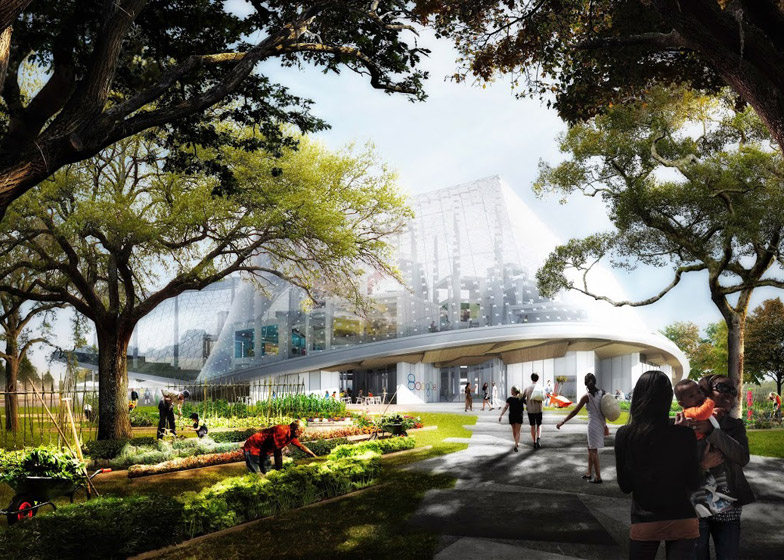The future of Google's new BIG- and Heatherwick-designed California headquarters is in jeopardy – because social network LinkedIn has been given most of the land required to build it.
Both companies are seeking to expand their real-estate capacity in the North Bayshore neighbourhood of Mountain View but, according to local reports, city councillors have elected to grant around two thirds of the available commercial land to LinkedIn.
Google is alleged to have been allotted roughly 48,000 square metres – enough for just one of the four structures conceived by British designer Thomas Heatherwick and Danish architect Bjarke Ingels – while LinkedIn will take 130,000 square metres.
It is now unclear whether Google's proposal is still viable, or whether it will need to be redesigned for a new location.
The decision was reportedly made in a meeting held on Tuesday night. According to Silicon Valley Business Journal reporter Nathan Donato-Weinstein, Google's real-estate head David Radcliffe told council members the move was "a significant blow".
In a statement released on Wednesday, Radcliffe added: "We're pleased the council has decided to advance our landings site and will continue to work with the city on Google's future in Mountain View."
Google has been based in Mountain View, just outside San Francisco, for the last 15 years. The web giant first unveiled the vision for its new campus back in February, which involves a series of buildings and outdoor areas sheltered beneath translucent domes.
Rather than permanent buildings, the company plans to use robots to install lightweight block-like structures that can be moved around or adapted as its needs change. Bjarke Ingels said the campus would set a new industry standard for workplace design.
LinkedIn, which has had to regularly compete with the much-larger rival, is also keen to expand. Its proposal includes new office buildings, a theatre and a health club.
According to Donato-Weinstein, councillors were impressed with Google's vision but were worried about stifling the growth of LinkedIn, which they claim is an integral part of the city's business diversity.
The decision does not give LinkedIn any planning permissions, but allows the company to progress with developing formal plans.

